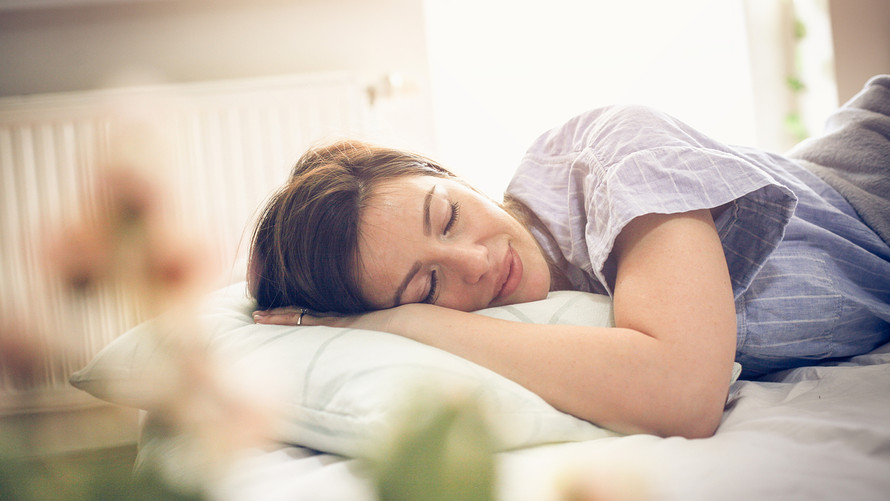
There’s nothing more annoying than a poor night’s rest. The following day is consumed by caffeine and can be a bit irritable. However, it’s possible to be more and you might be sitting in a room with an early breakfast person. Bright and breezy and without a dark circle visible They’re incredibly chipper at 9 am . What’s their secret?
What you’re witnessing is a very Effective Sleepers. It’s an uncommon breed that belongs to those of the Millennial Generation, with super-concentration abilities and the knack of finishing everything with plenty of time.
If you’ve had dreams, however only for a moment, of getting the legendary 7-9 hours of sleep Try these 8 practices of sleepers who are highly efficient.
1- They’re Proactive
According to NHS selections according to NHS choices, in the UK alone, “one in five people feels unusually tired.” Most of the time the reason isn’t due to physical ailments but rather an accumulation of small tensions that leave people physically exhausted or being tossed around at night.
Consider this: how many people are complaining of fatigue day-to-day? Many. However, the question is what percentage of them actually do something to change it? What differentiates the most effective sleepers from those who are tired is the way they approach sleeping.
We aren’t all fortunate enough to drift to sleep as soon as our heads rest on the pillow and awake refreshed. It requires commitment to routine, discipline and the habit of a healthy sleep hygiene. You must address your choices in your life before declaring yourself an insomniac for the rest of your life. Make sure you have a mattress that is supportive clean your room of any distractions and get into bed at a sensible time. Be proactive.
2- They Maintain An Effective Circadian Rhythm
Effective sleepers control their circadian rhythms – they understand the amount of sleep they need and work hard to achieve it. The ideal amount of sleep for adults between the ages of 18 and 64 is 7-9 hoursaccording to the National Sleep Foundation. However, the time at which you decide to fall asleep is your choice.
According to the sleep expert Michael Breus, the average night’s sleep for each person is approximately 90 minutes and we’re required to have five of these 90-minute cycles every night. If we calculate this, it is 7.5 hours each night.
To figure out when you’re supposed to go to bed pick the ideal time to wake up and go to sleep backwards 7.5 hours. From now on even on weekends, try to adhere to these particular timeframes for sleep and wake-up to establish a healthy cycle (your internal timer).
Consistently sleeping is essential in avoiding fatigue throughout the day. It promotes a healthy hormone balance, boosts the amount of energy and also allows to recover. It’s a difficult habit to establish and you’ll experience significant improvements when you adopt regular sleeping patterns.
3- They DON’T Use Smartphones Before Bedtime
This is a negative habit that many sleep-deprived people admit to – constant scrolling. It’s dark, you’re bored and you’d like to know what your pals are up to and to catch up prior to setting your alarm. Big mistake. Similar to sleeping in front the television The artificial blue light emanating from your smartphone is affecting your sleep/wake cycles.
It tricked the brain to think that it’s early and can interfere with the production of melatonin. However, melatonin can do more than assist us in sleeping and rest. If you don’t have it, you’re more susceptible to diseases and the symptoms of depression. Make sure to turn off all electronic devices before you go to bed, and place your phone on the opposite side of your room as you rest – no more 2am Facebook!
4- They Eat The Right Things
The way you fuel your day is vital to determine the quality of your sleep. If you indulge in sugar-rich chocolates all day (that boost the levels of insulin and make you sluggish when you shouldn’t) you encourage inconsistent eating habits and are more likely to sleep and this can disrupt your sleep. Also, drink coffee between 9-5 and you’ll be unable to shut off your brain until bedtime. If you can you can, stay clear of high fat and sugary food items – they’re not conducive to sleep. Similar to drinks, spicy food and caffeine. If you’re having trouble sleeping be aware of your limits.
It is better to ensure that your kitchen is stocked with healthy, sleep-inducing foods. The tryptophan content of wholegrain carbs , as well as foods like turkey and cottage cheese help to reduce the cravings for food late at night by stimulating the production of serotonin/melatonin that regulates your sleep and wake patterns. Consider eating a small amount of crackers or bread one hour before bedtime. Honey, tea, camomile tea, nuts and kiwi fruit are also believed to help.
5- They’re Avid Readers
Highly effective sleepers like to read. They turn off all electronic devices for a couple of hours prior to settling into bed and cuddling to read an great book. The process of winding down before getting ready to go to sleep is crucial to getting a good night’s sleep. It informs your body that the activity has stopped and you’re now ready to rest.
Reading can do exactly this. Instead of stimulating your mind, it lets you get lost in other worlds that are far from your own, removing any stress and allowing you to relax. An article from The Telegraph claims that ‘it only takes about 6 minutes of reading time to decrease the heart rate and tension in muscles. This, will help you relax. The time is now to visit the library.
6- They Appreciate The Sunshine
Inscribing yourself for eight hours in a dark office could negatively impact your sleeping. In the absence of enough sun it can alter your body’s clock and disturb the natural rhythms of sleep and wake.
A study that was presented during the annual 27th conference at the Associated Professional Sleep Societies LLC discovered the necessity of sunlight in its fullest. In comparing the sun-seeking habits of 49 day shift workers who work in workplaces with no windows and 22 at workplaces that have windows, they discovered that employees who had exposure to sunlight more frequently actually had an improved night’s rest as well “slept an average of 46 minutes more per night,” according to Forbes.
Furthermore, people who have windows were also more active in the daylight which can contribute to high-quality sleep. Do not eat lunch at work and take advantage of the sun’s rays to improve your sleep.
7- They’re Pretty Spiritual
and breeeathe. If you’re struggling to fall off, tap into the inner Zen and begin to practice meditation. A study conducted by Havard Medical Health agrees that when you focus in “moment-by-moment experiences, thoughts, and emotions” by engaging in mindfulness meditation, you can tackle everyday challenges with more shrewdness and a calm mind. This, in turn, eases the stress off and allows you to relax and sleep for the recommended 7 to 9 hours.
Simple breathing techniques can aid in relaxation. Expert in health and best-selling writer Dr. Weil recommends the ‘4-7-8 breathing method’, that is, you inhale for four seconds, hold it for 7 seconds after which you exhale for eight seconds. Repeat the process three times until you achieve a state of calm.
8- They Seek Medical Help
If you’re having Effective Sleepers, you should seek medical assistance. For the US alone there are estimates that say around 22 millions Americans have sleep apnoea. Many of which aren’t diagnosed. If you are suffering from frequent fatigue, sleeplessness and fatigue or suffer from snoring seek out an expert in medicine to determine how they can shed more light on the problem.









